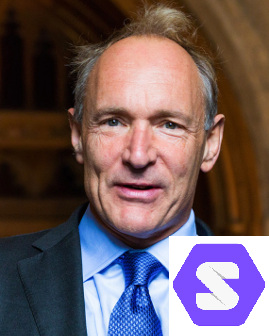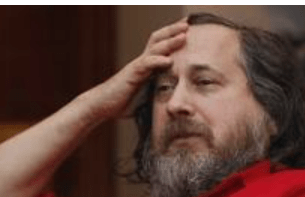Solid is a web decentralization project led by Tim Berners-Lee, the inventor of the World Wide Web, developed collaboratively at the Massachusetts Institute of Technology. It is an alternative to the world wide web as we know it now.
Solid has three objectives:
- True data ownership
- Modular Design
- Reusing existing data
What is the issue with the web we now know?
Berners-Lee tells the Guardian that “the problems the web now faces into three categories. The first is what occupies most of the column inches in the press, but is the least intrinsic to the technology itself: “deliberate, malicious intent, such as state-sponsored hacking and attacks, criminal behaviour and online harassment”.
The web now has “deliberate, malicious intent, such as state-sponsored hacking and attacks, criminal behaviour and online harassment”
Tim Berners-Lee
The second is system design that creates perverse incentives where user value is sacrificed, such as ad-based revenue models that commercially reward clickbait and the viral spread of misinformation.
The third is the unintended negative consequences of benevolent design, such as the outraged and polarised tone and quality of online discourse.
In recent talk attended by Ethan Zuckerman from MIT Lab and thankfully wrote a detailed account of it, Berners-Lee stated that “The consequence of a monetized web, Sir Tim believes, is consolidation, designed to give advertisers larger audiences to reach. That consolidation leads to silos: “My photos are on Flickr, but my colleagues are all on LinkedIn? How do I share them? Do I have to persuade all my friends to move over to the platform I’m on?”
The man who built the web …is now working on alternative models to save us from the Black Mirror universe… ”
Ethan Zuckerman, MIT Media Lab
In March of this year, Sir Tim launched the #ForTheWeb campaign to celebrate the thirtieth anniversary of the Web. For him, the campaign was meant to feature the web worth saving, not to demand that either governments or Facebook fix it for us: “We need to fix networks and communities all at once, because it’s a socio-technical system,” he explains. “We need to work inside the companies and inside the government. Some things are simple to fix — net neutrality, cheaper broadband, those were relatively simple. This isn’t simple. Free speech and hate speech are complicated and need complex social processes around them.” And while #ForTheWeb is a space for articulating the key values we want to support for a future direction of the web, that new direction needs a technical component as well.”
The Solution?
Solid. As Zuckerman writes, “There’s something very surreal about a moment in which thousands of researchers and pundits are studying what’s wrong with social media and the Web, and surprisingly few working on new models we can use to move forward. The man who built the web in the first place is now working on alternative models to save us from the Black Mirror universe and the broader academic and professional world seems… surprisingly uninterested. “


